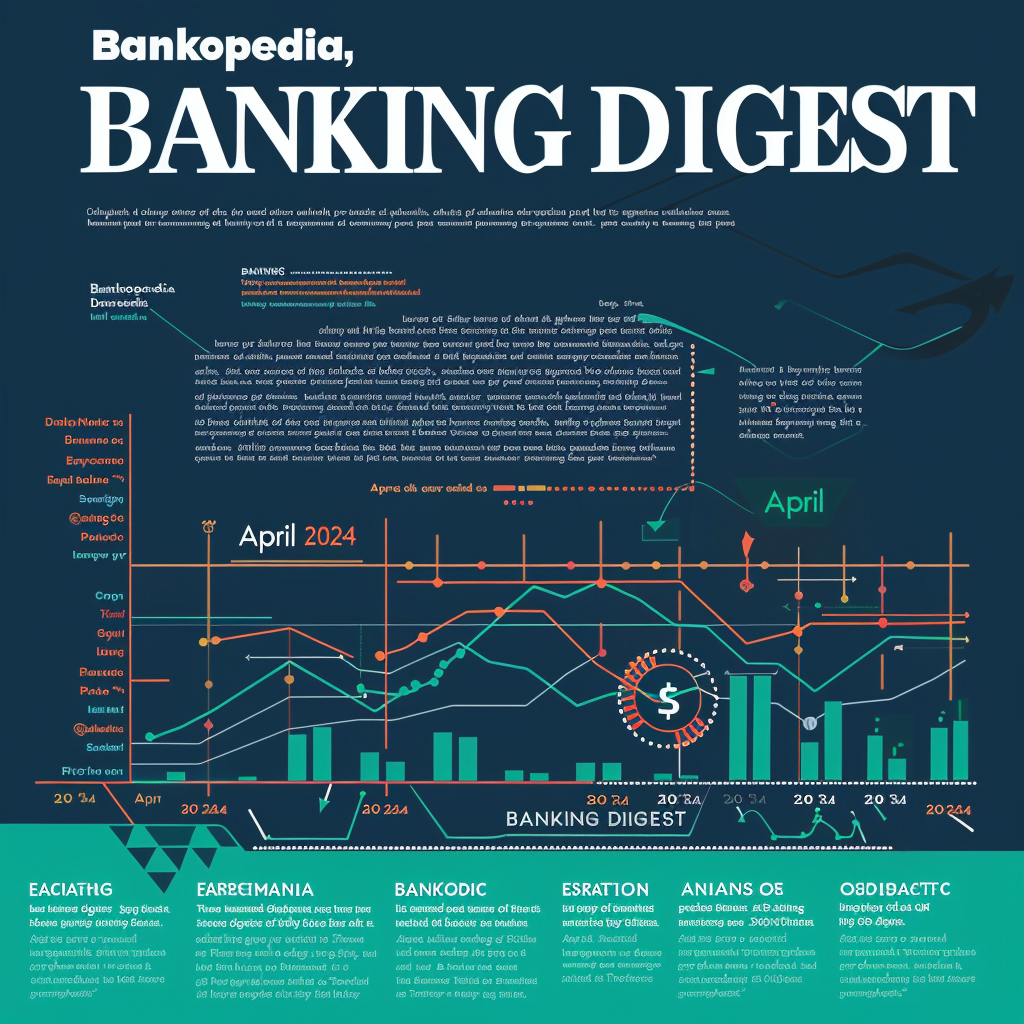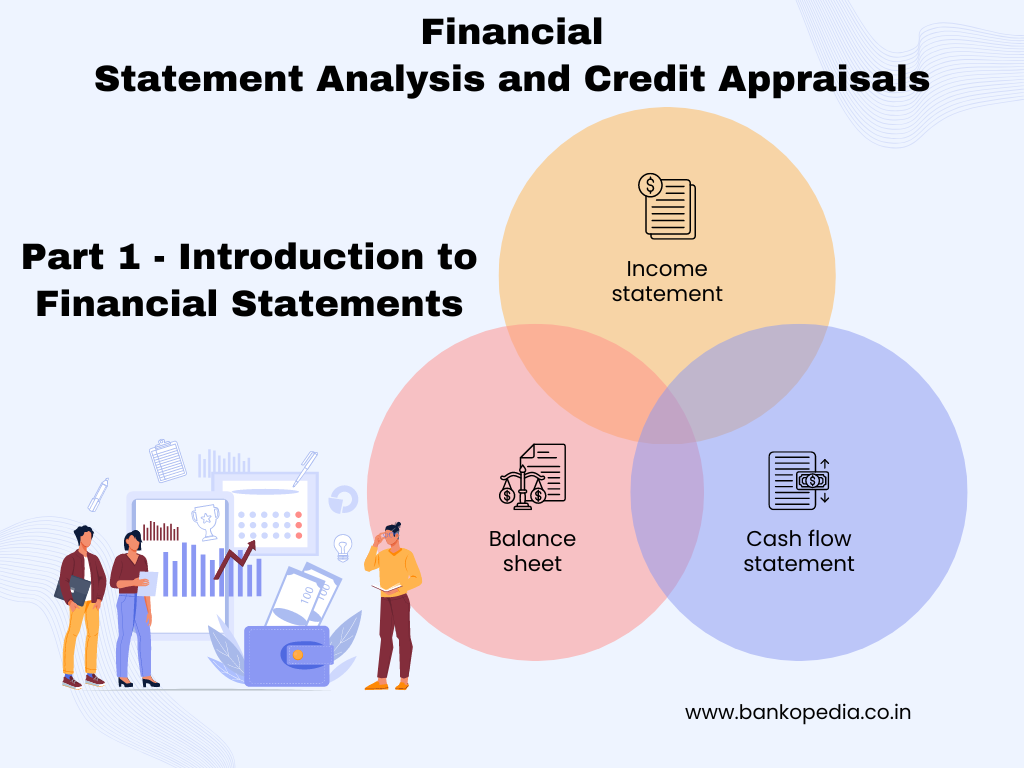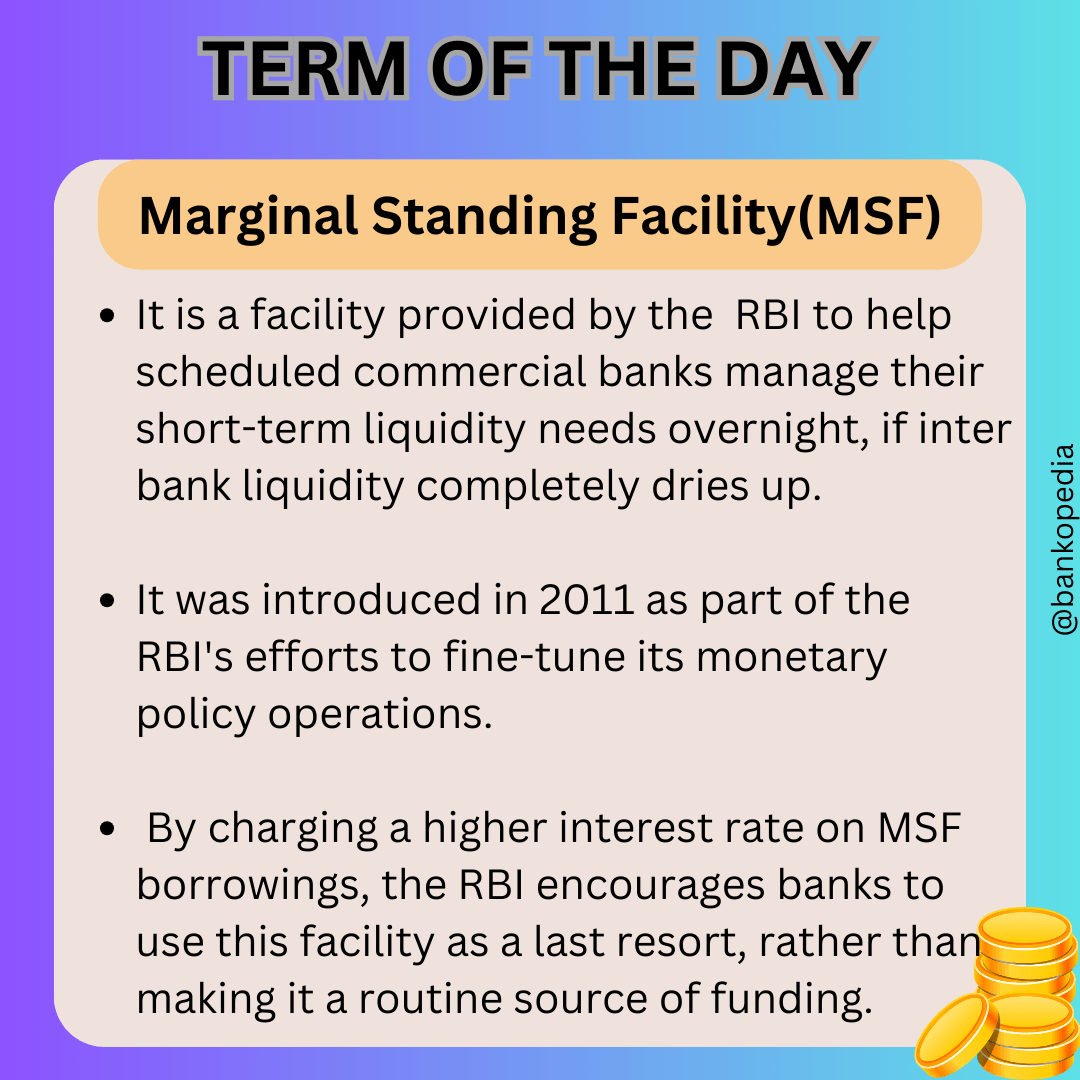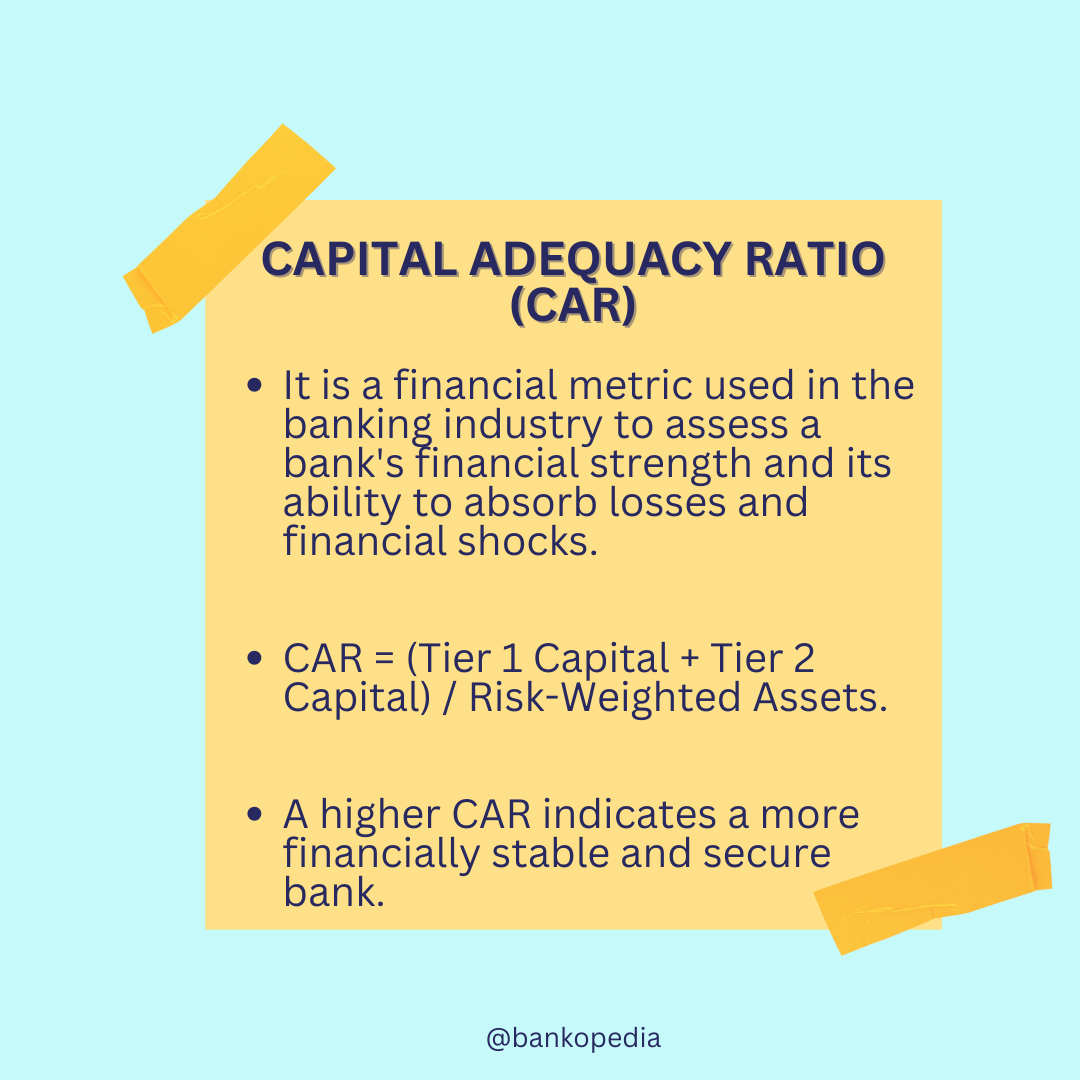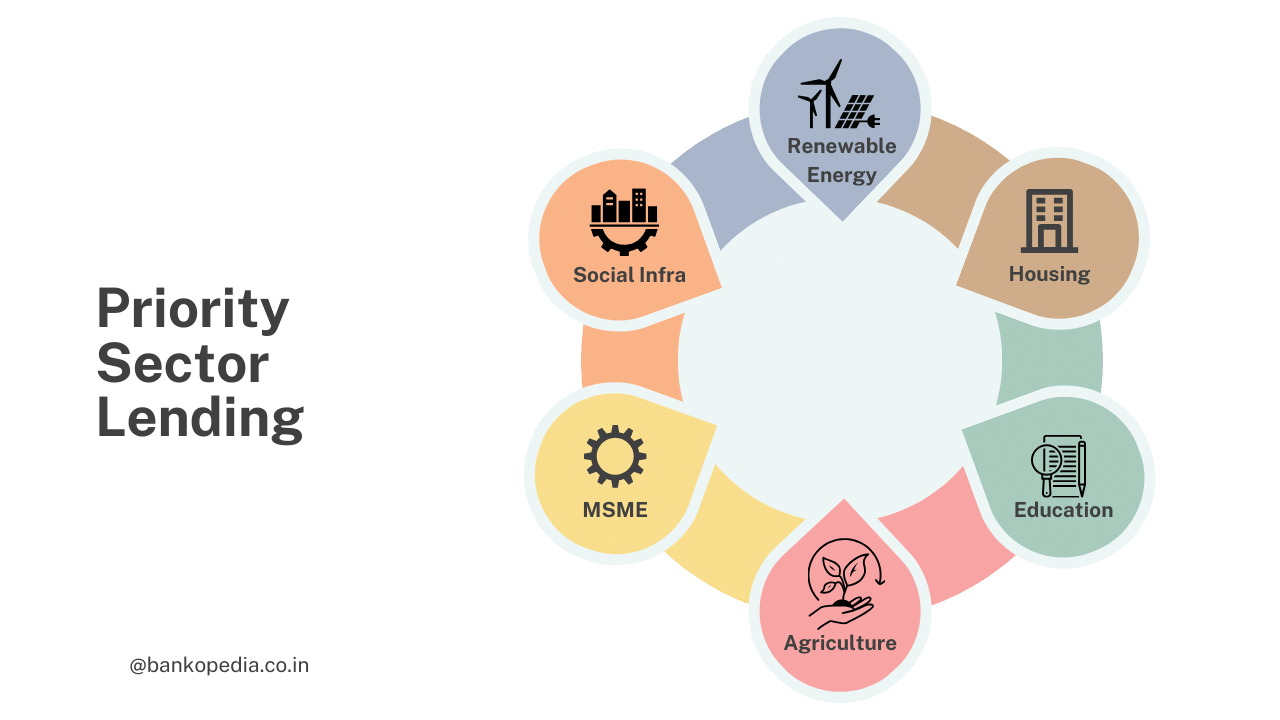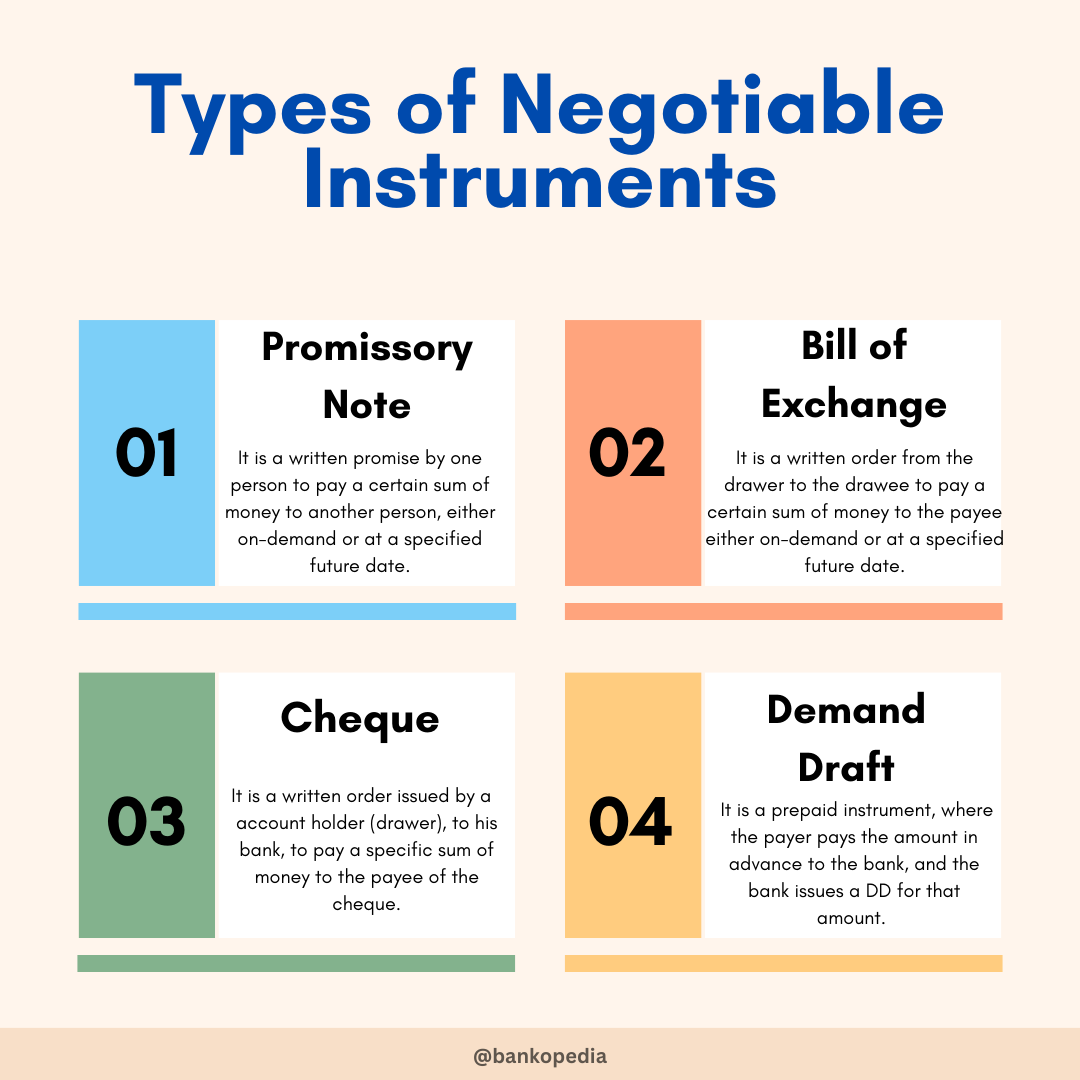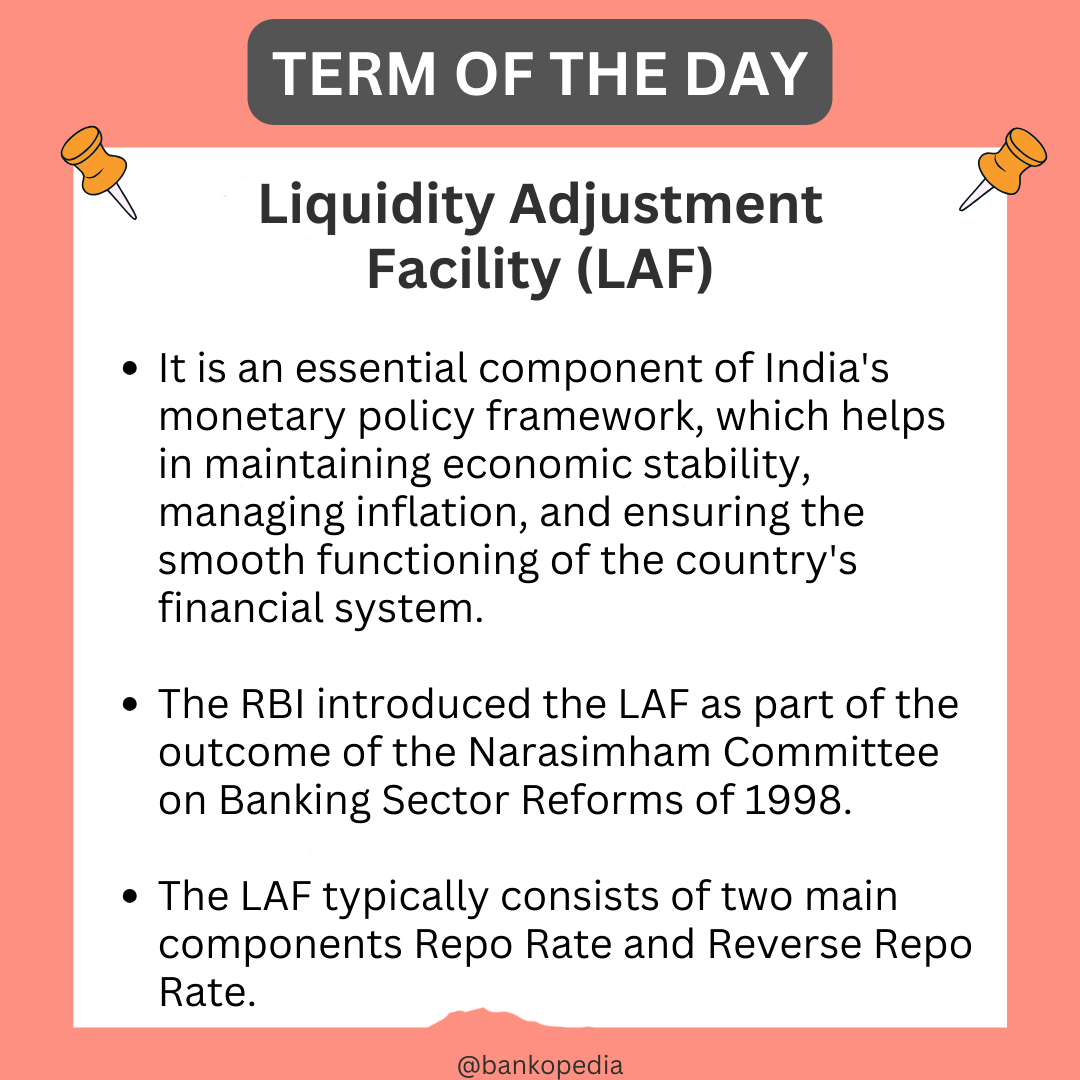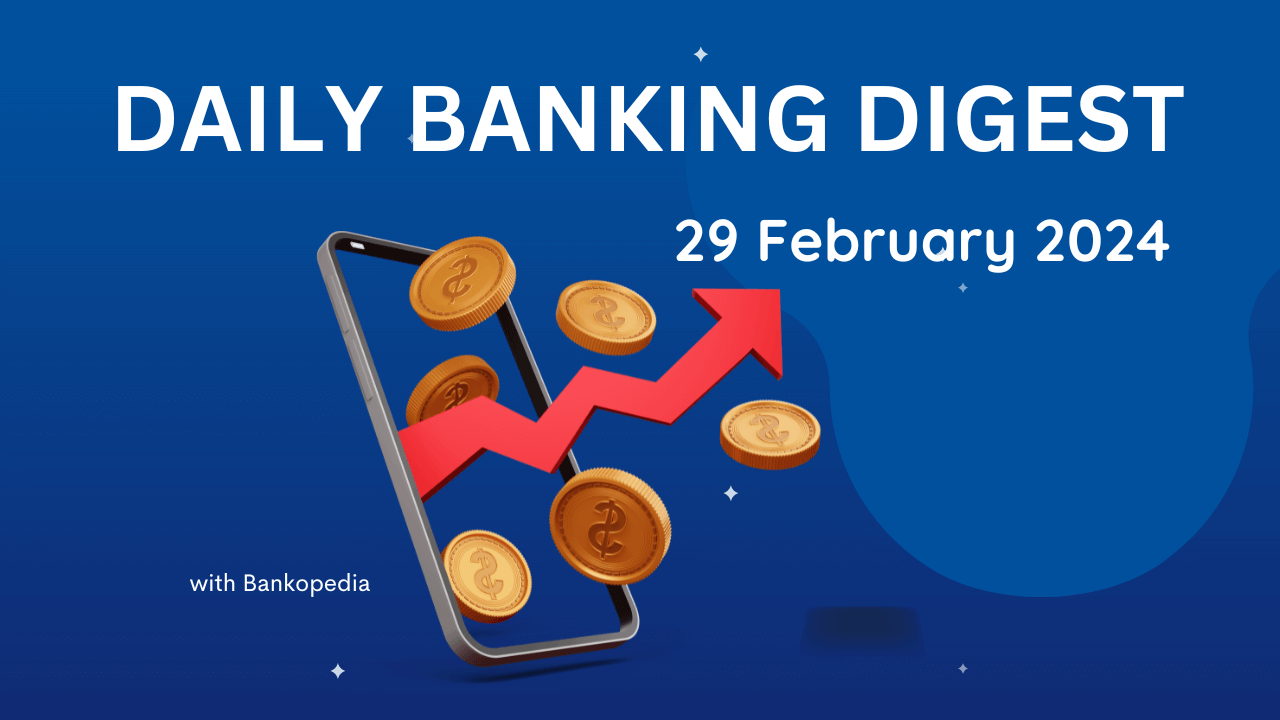Welcome to Daily Banking Digest, your premier source for the latest news and insights on April 09, 2024, focusing on banking, the economy, and finance. Our platform offers a comprehensive overview of the day’s most critical financial stories, market trends, and economic developments. Whether you’re a professional in the financial sector, an investor monitoring market movement, or someone interested in staying informed about the economic landscape, Daily Banking Digest provides reliable, up-to-date information.
Join our Telegram Channel for Daily PDF in your Inbox – Click Here
Table of Contents
Monetary Policy Faces Challenges Amidst Climate Change Concerns: RBI Report
Climate change is causing frequent weather shocks that pose challenges for monetary policy and economic growth. The Reserve Bank of India (RBI) report highlights the impact of climate change on inflation, interest rates, and the transmission of monetary policy.
Key Points:
Impact on Inflation: – Extreme weather events disrupt agricultural production and global supply chains, leading to inflation.
Impact on Natural Rate of Interest: – Lower productivity due to climate change may reduce the natural rate of interest.
Impact on Monetary Policy Transmission: – Climate change can weaken the transmission of monetary policy actions to households and firms.
Long-Term Economic Impact: – Without mitigation policies, long-term output will be 9% lower by 2050 due to physical risks of climate change.
Monetary Policy Response: – Central banks are incorporating climate risks into their models.
Downside Risks to Growth: – Frequent weather-related disturbances pose downside risks to economic growth.
Hyundai and Kia Collaborate with Exide Energy Solutions to Establish EV Battery Manufacturing in India
Hyundai Motor Company and Kia Corporation have partnered with Exide Energy Solutions Ltd to localize electric vehicle battery production in India. This collaboration aims to establish a competitive advantage by equipping Hyundai and Kia’s future EV models with locally produced batteries, specifically focusing on lithium-iron-phosphate (LFP) cells.

Key Points:
- Partnership Announcement: Hyundai Motor Company and Kia Corporation have signed an MOU with Exide Energy Solutions Ltd for EV battery localization in India.
- Localization Focus: The partnership aims to localize EV battery production, particularly LFP cells, to support the expansion of EV plans in the Indian market.
- Strategic Significance: This move positions Hyundai and Kia as pioneers in using domestically produced batteries for their upcoming EV models in India.
- Market Importance: India is a key market for vehicle electrification due to government carbon neutrality goals, making localized battery production crucial for cost competitiveness.
- Competitive Advantage: The partnership with Exide Energy Solutions Ltd will provide Hyundai and Kia with a competitive advantage by equipping their future EV models with locally produced batteries.
- Hyundai Motor Group’s Plans: Hyundai Motor Group aims to expand its exclusive battery development, production, supply, and partnerships in the Indian market through this strategic cooperation.
- Hyundai Motor India’s EV Plans: Hyundai Motor India plans to launch its high-volume EV model in 2025 and currently sells IONIQ5 and Kona in the EV segment.
- Kia India’s EV Model: Kia India sells the EV6 model.
- Exide Energy Solutions: EES is a wholly-owned subsidiary of Exide Industries Ltd, a leading lead-acid battery supplier in India with over 75 years of experience.
- Stock Market Impact: The announcement led to a 15% gain in Exide Industries shares on the stock market.
PLI Scheme Drives Surge in Domestic Electronics Production, Leading to Reduced Imports
India’s domestic electronics manufacturing is expanding, leading to a significant decline in imports of various components. The government’s PLI scheme has boosted local production, particularly of smartphones, resulting in increased procurement of components from domestic suppliers.
Key Points:
Imports of Electronics Components:
- Imports of completely boxed units of electronics, such as smartphones, have decreased by 40% in FY24.
- Imports of plastic parts, including smartphone back covers and camera lenses, have fallen by 33% in volume and 26.5% in value.
- Imports of mechanical parts, including vibrator motors and screws, have declined by 4% in volume and 1.6% in value.
- Imports of charger adapters have witnessed a sharp 72% drop in volume but a slight increase in value.
Local Manufacturing:
- Local manufacturing of electronics, especially smartphones, has grown by 5% in 2023.
- The government’s PLI scheme has encouraged manufacturers to procure components from local producers.
- Import duty on plastic and mechanical parts has been reduced to 10% to enhance the competitiveness of local manufacturing.
Imports of High-Ticket Items:
- Imports of camera modules, display assemblies, and battery packs have increased, indicating the need for deeper local value addition.
- Semiconductor imports have risen due to the import of high-end semiconductors and increased wafer costs.
Electronics Exports:
- India’s electronics exports have grown by 22.24% in the first nine months of FY24, exceeding $20 billion.
- Smartphone exports by Apple and Samsung have significantly contributed to this growth.
Increased Risk Weights for Unsecured Loans Impact Co-Lending Arrangements
NBFCs’ co-lending portfolios are expected to moderate in FY’25 due to a slowdown in unsecured lending, particularly personal loans. This is attributed to the increased risk weight for unsecured consumer credit, leading to a projected growth moderation to 25-35% in FY’25 from 35% in FY’24. As a result, the share of personal loans in co-lending portfolios may decline, while MSME and home loans are expected to increase. Co-lending will continue to gain traction as NBFCs seek alternative funding sources for retail loans.
Key Points:
Growth Moderation in Personal Loans: – Risk weight increase for unsecured consumer credit to 125% from 100% – Growth moderation to 25-35% in FY’25 from 35% in FY’24
Shift in Co-Lending Portfolio: – Decline in personal loan share – Increase in MSME and home loan share
Government Initiatives: – Focus on increasing MSME sector contribution to GDP – ‘Housing for All’ initiatives
Current Co-Lending Portfolio: – Personal loans account for about a third of NBFC assets – Housing loans at 20% – Unsecured MSME loans and gold loans each at 13%
Co-Lending Growth Momentum: – Healthy growth momentum at 35-40% annually – Rising interest from NBFCs and banks
REC Approves Unprecedented Loan Disbursement of Rs 3.59 Lakh Crore for FY24
REC, a state-owned non-banking finance company, achieved record loan sanctions of Rs 3.59 lakh crore in 2023-24, a 33.66% increase from the previous year. The company also disbursed Rs 1.61 lakh crore in loans, a 66.72% increase. REC’s loan book grew by 17.13% to Rs 5.09 lakh crore as of March 31, 2024.
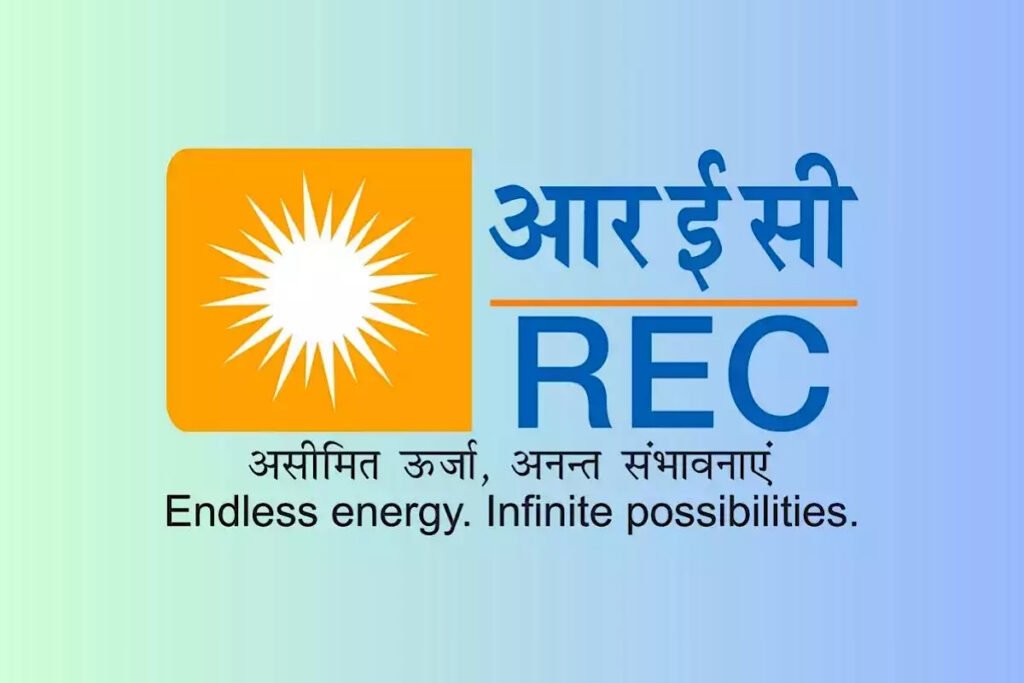
Key Points:
Loan Sanctions:
- Record loan sanctions of Rs 3.59 lakh crore in 2023-24
- 33.66% increase from the previous year
- Rs 1.36 lakh crore sanctioned for renewable energy projects
Loan Disbursements:
- Rs 1.61 lakh crore in loan disbursements
- 66.72% higher than the previous year
Loan Book:
- Loan book of Rs 5.09 lakh crore as of March 31, 2024
- 17.13% growth from the previous year
Company Profile:
- REC is a non-banking finance company under the Ministry of Power
- Focuses on power sector financing in India
General Insurance Sector Records 12.78% Growth in Fiscal Year 2024
The general insurance industry in India experienced a 13% growth in FY24, with a slowdown from the previous year’s 16% growth rate. This slowdown was primarily attributed to a decline in agricultural insurance. Excluding specialized insurers, the industry saw a growth rate of 16.22%. The industry is projected to grow by 15-17% in FY25, driven by health and motor insurance sectors.
Key Points:
Growth Rate: – 13% growth in FY24, slower than the previous year’s 16% – 16.22% growth excluding specialized insurers
Factors Affecting Growth: – Decline in agricultural insurance due to state governments adopting trust models
Industry Premium: – Total industry premium reached Rs 2.89 lakh crore, up from Rs 2.56 lakh crore
Growth Projections: – 15-17% growth expected in FY25
Growth Drivers: – Health and motor insurance sectors
Market Share: – New India Assurance remains the largest insurer with 12.78% market share – Public sector insurance companies’ market share declined slightly to 31.18% – Private sector insurance companies’ market share increased slightly to 53.52%
Top Performers: – Bajaj Allianz (private insurer) with 33.49% growth – Oriental Insurance (public insurer) with 17% growth – Niva Bupa and Aditya Birla Health Insurance (standalone health insurers) with significant growth rates
Q4FY24 Bank Earnings Preview: Profit Growth Projected at 9.6%
Listed commercial banks in India are anticipated to experience steady earnings growth in Q4 FY24 due to robust credit growth and healthy asset quality. Analysts predict a 9.6% Y-o-Y increase in profits and an 8.7% rise in NII.
Key Points:
- Credit Growth: Bank credit growth has been strong, supported by aggressive mobilization and competitive rates.
- Deposit Growth: Deposit growth has also accelerated, narrowing the gap between credit and deposits to around 3.4%.
- Earnings Growth: Profits are expected to grow by 9.6% Y-o-Y in Q4 FY24.
- Net Interest Income (NII): NII is projected to increase by 8.7% in Q4 FY24.
- Asset Quality: Asset quality remains healthy, contributing to the banks’ financial stability.
Consumer Price Inflation in India Projected to Decline to 4.91% in March: Reuters Poll
India’s consumer price inflation is projected to have eased to 4.91% in March, a five-month low, but remains above the Reserve Bank of India’s target of 4%. Food price increases continue to drive inflation, particularly impacting low-income households. Despite the expected decline in inflation, supply-side shocks and strong economic growth may hinder further disinflation.
Key Points:
Inflation Rate: – Consumer price inflation likely eased to 4.91% in March from 5.09% in February.
Food Price Impact: – Food price rises have outpaced headline inflation, affecting poor households dependent on government subsidies.
Core Inflation: – Core inflation, excluding food and energy, is estimated at 3.27% in March.
RBI’s Outlook: – Inflation is expected to return to the RBI’s target in the next quarter but remain above it in subsequent quarters.
Economic Growth: – The economy grew 8.4% in the October-December quarter and is forecast to grow 7.6% in the 2023-24 fiscal year.
RBI’s Policy Stance: – The RBI is widely expected to cut its key policy rate in the next quarter.
Risks to Inflation: – Potential supply-side shocks and strong economic growth pose risks to the inflation downtrend.
Manoj Panda Appointed to 16th Finance Commission by Central Government
The Government of India has appointed Manoj Panda as a full-time member of the 16th Finance Commission, replacing Niranjan Rajadhyaksha. Panda is a renowned economist with expertise in macroeconomic trends, trade and fiscal policy, and has held various positions in research and academia. The Finance Commission is responsible for determining the distribution of tax proceeds between the central government, states, and local bodies.
Key Points:
Appointment of Manoj Panda: – Manoj Panda appointed as full-time member of 16th Finance Commission. – Replaces Niranjan Rajadhyaksha, who resigned due to personal reasons.
Term of Office: – Panda’s term will last until the submission of the Commission’s report or October 31, 2025, whichever is earlier.
Research Areas: – Panda’s research focuses on macroeconomic trends, trade and fiscal policy options, and their impact on growth and distribution.
Previous Positions: – Director of Centre for Economic and Social Studies (CESS), Hyderabad. – Professor and Associate Professor at Indira Gandhi Institute of Development Research (IGIDR), Mumbai. – Economist and Senior Economist at National Council of Applied Economic Research (NCAER), New Delhi.
Education: – PhD in Economics from Indian Statistical Institute. – Post-doctoral fellow at Yale University.
16th Finance Commission: – First meeting held on February 14, 2023, under the chairmanship of Arvind Panagariya. – Other full-time members include Ajay Narayan Jha and Annie George Mathew. – Soumya Kanti Ghosh appointed as part-time member.
Role of Finance Commission: – Constitutionally-mandated body established every five years. – Devises a formula for distributing net tax proceeds between the Centre, states, and local bodies. – Currently, India shares 41% of federal taxes with states as per the recommendations of the 15th Finance Commission.
Indian Government Bond Yields Surge to Two-Month Peak, Mirroring US Treasury Yields
The yield on India’s benchmark 10-year government bond rose to a two-month high on Monday, tracking a surge in US Treasury yields. The rise in yields is attributed to expectations of a delay in rate cuts by the US Federal Reserve and a steepening overnight interest swap curve. The newly auctioned 10-year government bond emerged as the second most traded bond, potentially challenging the benchmark status of the existing bond.
Key Points:
Yield Rise: – Benchmark 10-year government bond yield rose to 7.15%, the highest since January 30. – Yield increase driven by rising US Treasury yields and global rate hikes.
New 10-Year Bond: – Newly auctioned 10-year government bond became the second most traded bond. – Expected to become the benchmark after its second issuance due to large issuance amount and negative market sentiment.
Overnight Interest Swap Rates: – 5-year OIS rate rose by 10 bps, while 1-year OIS rate rose by 5 bps. – Steepening OIS curve indicates a negative rate scenario.
US Federal Reserve: – Speculation that the US Federal Reserve may postpone rate cuts this year. – Stronger economic data reduces chances of rate cuts in June.
US Treasury Yields: – Yield on 10-year US Treasury note rose to 4.45%. – Market participants await US Consumer Price Index data for further clarity on rate trajectory.
Domestic Inflation: – RBI lowered CPI inflation forecast for the current financial year. – Inflation projected below 4% in the second quarter.
Petcoke Decline Contributes to 0.6% Drop in India’s Fuel Consumption in March
India’s fuel consumption reached a record high of 233.32 million tonnes in FY24, a 4.6% increase from the previous year. However, the demand declined by 0.6% in March due to reduced petroleum coke usage.
Key Points:
Fuel Consumption: – Fuel consumption in India reached a record high of 233.32 million tonnes in FY24. – The demand fell by 0.6% on an annual basis in March.
Petroleum Coke Consumption: – Petroleum coke consumption fell 16.8% in March to 1.63 million tonnes. – This decline contributed to the lower monthly fuel consumption numbers.
Diesel Sales: – Diesel sales rose 3% to 8.03 million tonnes in March. – Diesel is the most used fuel in India.
Petrol Sales: – Petrol sales reached a four-month high, rising 5.1% to 3.14 million tonnes in October. – Sales stood at 2.99 million tonnes in the same month of the previous year.
Mobile Wallet Transactions in India Projected to Exceed Rs 531 Trillion by 2028: GlobalData
Mobile wallet adoption in India is rapidly increasing, becoming a preferred payment method over traditional options. The growth is driven by government initiatives, widespread use of UPI-based QR code payments, and high merchant acceptance. The value of mobile wallet payments is projected to surpass Rs 531.8 trillion by 2028, with a CAGR of 18.3%.
Key Points:
Growth of Mobile Wallet Payments: – Mobile wallet payments in India are expected to reach Rs 531.8 trillion by 2028, with a CAGR of 18.3%. – The value of mobile wallet payments grew at a CAGR of 72.1% between 2019 and 2023, reaching Rs 202.8 trillion in 2023.
Government Initiatives: – The government’s promotion of digital payment methods, including UPI, has contributed to the growth of mobile wallet payments. – RBI will soon facilitate cash deposit facilities in banks through UPI, eliminating the need for ATMs or debit cards.
UPI Adoption: – UPI had a user base of 300 million as of October 2023. – RBI plans to permit the use of third-party UPI apps for making payments from PPI wallets.
Average Ticket Size: – The average ticket size of UPI transactions dropped by 8% in H2-CY23 compared to H2-CY22. – PhonePe, Google Pay, and Paytm accounted for 95.4% of UPI transactions by volume and 93% by value in December 2023.
India’s Fuel Consumption Surges 5% in FY24, Setting a New Annual Record
India’s fuel consumption declined slightly in March 2023 compared to the previous year, but demand for the 2024 financial year increased significantly due to higher sales of automotive fuel and naphtha. Diesel, gasoline, and LPG sales all saw growth, while fuel oil usage declined.
Key Points:
- Overall Fuel Consumption:
- Declined by 0.6% y-o-y in March 2023
- Increased by 5% for the 2024 financial year
- Diesel Sales:
- Increased by 3.1% y-o-y in March 2023
- Up 4.4% for the previous fiscal year
- Gasoline Sales:
- Grew by 6.9% y-o-y in March 2023
- Up 6.4% for the fiscal year
- Bitumen Sales:
- Remained stable in March 2023
- Rose by 9.9% for the fiscal year
- LPG Sales:
- Increased by 8.6% in March 2023
- Naphtha Sales:
- Saw a significant rise of 5.5% in March 2023
- Fuel Oil Usage:
- Declined by 9.7% y-o-y in March 2023
- Decreased by 6.3% for the fiscal year
SEBI Takes Action Against Finfluencer, Impounds Rs 12 Crore in Illegal Profits
Sebi has barred Ravindra Bharti Education Institute and its key individuals from the securities market for operating an unregistered investment advisory business. The institute has been ordered to deposit Rs 12 crore in unlawful gains earned from the business.
Key Points:
Bar on Ravindra Bharti Education Institute and Individuals:
- Ravindra Bharti Education Institute, Ravindra Balu Bharti, Shubhangi Ravindra Bharti, Rahul Ananta Gosavi, and Dhanashri Chandrakant Gosavi have been barred from the securities market.
- They are prohibited from associating with any Sebi-registered intermediary.
Unregistered Investment Advisory Services:
- Ravindra Bharti Education Institute was providing investment advisory services without Sebi registration.
- Investors were lured with promised returns ranging from 25% to 1,000%.
Impounding of Unlawful Gains:
- Rs 12,03,82,130.91, representing the unlawful gains earned from the unregistered advisory business, has been impounded from Ravindra Bharti Education Institute.
Cease and Desist Order:
- The entities have been ordered to cease offering investment advisory services and acting as investment advisors.
Previous Action by Sebi:
- In October 2023, Sebi barred three entities from the securities market and impounded illegal gains worth over Rs 17 crore for unauthorized investment advisory services.
IT Department Announces April 30 Deadline for Processing Pending Tax Refunds
The Income Tax Department has set April 30 as the deadline for approving pending income tax refunds. Over 46,000 income tax returns have been filed since the portal for Assessment Year 2024-25 opened on April 1. The Department has also set deadlines for other taxpayer-related actions, including disposal of penalties and TDS cases.
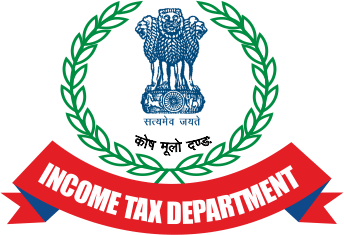
Key Points:
Pending Refunds: – Deadline for approving pending refunds: April 30, 2024 – Refunds withheld under Section 241A to be prioritized
Income Tax Returns: – Over 46,000 returns filed in the first five days of the portal opening – Nearly 3,000 returns already processed
Time Barred Cases: – Deadline for disposal of penalties in half of the cases getting time barred on March 31, 2025: June 30, 2024
TDS Cases: – One month deadline for disposal of pending applications for NIL or lower TDS/TCS – Deadline for passing orders in TDS survey cases conducted up to March 31, 2024: June 30, 2024
Surge in M&A Deals: $18.96 Billion Transacted in Q1 2024
India’s M&A activity rebounded in Q1 2024, with a 31% surge in deal value to $18.96 billion. However, the number of deals declined by 26%. The surge was driven by sectors such as media & entertainment, industrials, and telecommunications. Despite the increase, deal value remained lower than the record set in Q1 2022. Factors such as improved boardroom confidence, potential interest rate cuts, and diminishing inflationary pressures are expected to sustain M&A momentum in India.
Key Points
Deal Value and Volume – India-involvement M&A activity surged 31% to $18.96 billion in Q1 2024. – The number of M&A deals declined 26% to 607.
Sectoral Distribution – Media & entertainment led deal value with $3.8 billion, followed by industrials ($3.3 billion) and telecommunications.
Notable Deals – $3 billion merger between Walt Disney and Reliance Industries Ltd’s Indian media assets. – $2.5 billion merger between Data Infrastructure Trust and ATC India.
Factors Supporting M&A Momentum – Improved boardroom confidence. – Potential interest rate cuts. – Diminishing inflationary pressures. – Domestic consolidations. – Acquisitions aligned with sustainability themes. – Deployment of private equity dry powder.
Target India M&A – Target India M&A activity reached $18.1 billion, up 48.5% year-over-year. – Domestic M&A activity increased 6.5% to $8.3 billion. – Inbound M&A grew 122.3% to $9.8 billion. – Outbound M&A activity declined 73.5% to $570.3 million.
General Elections and M&A Activity – Deal making activity may slow down during the ongoing election season. – LSEG Deal Intelligence expects M&A momentum to be sustained post-elections.
Private Equity Activity – Private equity-backed M&A in India declined 64.9% to $1.2 billion in Q1 2024.
Vinod Francis Appointed as Chief Financial Officer of South Indian Bank
The South Indian Bank has appointed Vinod Francis as its new Chief Financial Officer (CFO) and Key Managerial Personnel. Francis, a veteran with 18 years of experience within the bank, has held various leadership roles and served as Deputy CFO since 2021. The current CFO, Chithra H, will transition to the role of Chief Compliance Officer (CCO) in accordance with RBI directives. These appointments aim to enhance the bank’s leadership team and maintain its compliance within the banking sector.
Key Points:
- Appointment of Vinod Francis as CFO:
- Seasoned professional with 18 years of experience within the bank
- Held key roles in credit underwriting and corporate finance
- Served as Deputy CFO since June 2021
- Transition of Chithra H to CCO:
- Current CFO and Senior General Manager
- Transition in line with RBI directives
- Strategic Decisions:
- Aim to strengthen the bank’s leadership team
- Uphold the bank’s position as a reliable and compliant institution
The Impact of Lab-Grown Diamonds on the Diamond Industry
The diamond industry is undergoing a transformation driven by the rise of lab-grown diamonds. These diamonds offer a compelling alternative to earth-mined diamonds due to their lower price point, sustainable production practices, and indistinguishable quality. As consumer preferences shift, the industry is recognizing the value of lab-grown diamonds, leading to new opportunities and challenges.

Key Points:
- Changing Market Dynamics:
- Declining prices of rough diamonds
- Surging demand for lab-grown diamond jewelry.
- The Rise of Lab-Grown Diamonds:
- Lower price point compared to earth-mined diamonds.
- Growing consumer acceptance
- Sustainable Practices and Environmental Considerations:
- Lab-grown diamonds have a smaller ecological footprint than earth-mined diamonds.
- Technological Advancements and Quality Assurance:
- Innovations in diamond-growing techniques have improved the quality of lab-grown diamonds.
- Shifting Perceptions and Industry Response:
- Growing acceptance of lab-grown diamonds
- Expanding presence of lab-grown diamond offerings from established brands
- Opportunities and Challenges Ahead:
- New market growth opportunities for lab-grown diamonds
- Adaptation and strategic planning required to navigate changing consumer preferences
RBI’s Decision to Maintain Lending Rates Impacts Auto Sales, Particularly Entry-Level Vehicles
The Reserve Bank of India’s (RBI) decision to maintain lending rates at 6.5% is expected to negatively impact vehicle sales, particularly entry-level models. This is due to declining consumer sentiment and price sensitivity among urban buyers. Despite challenges, the industry remains optimistic about a rebound driven by festive occasions and new product launches.
Key Points
Impact of RBI’s Decision – RBI’s decision to keep lending rates unchanged at 6.5% will continue to impact retail sales of all vehicles, especially entry-level models. – Prospective buyers may hesitate to purchase vehicles due to continued inflationary trends and lack of relief in finance rates.
Challenges for the Automotive Sector – Declining consumer sentiment among urban Indians is adding complexity to the industry landscape. – Upcoming elections may further impact vehicle sales across all segments.
Opportunities for Growth – Festive occasions and strategic product unveilings aim to revive consumer interest. – The industry remains cautiously optimistic about a recovery.
Vehicle Sales Performance – Passenger vehicle (PV) retail sales declined by 6% year-on-year (YoY) in March. – Two-wheeler (2W) sales grew by 5.44% YoY in March. – Three-wheeler (3W) sales grew by 17% YoY in March. – Commercial vehicle (CV) sales declined by 6% YoY in March. – Tractor retail sales declined by 3% YoY in March.
Annual Sales Growth – PV retail sales grew by 8.45% in FY2023-24. – 2W sales grew by 9.30% in FY2023-24. – 3W sales grew by 49% in FY2023-24. – CV sales grew by 5% in FY2023-24. – Tractor sales grew by 7.55% in FY2023-24.
Airline Capacity Cuts to Drive Summer Airfare Increases of 5-30%
Airfares in India are expected to increase by 5-30% this summer due to capacity cuts by airlines amid rising travel demand and operational issues. The price hike is temporary and is expected to stabilize within a few weeks as airlines adjust their schedules.
Key Points:
Capacity Cuts: – Vistara has cut 25-30 flights per day, representing 10% of its capacity. – IndiGo has grounded 75 aircraft due to engine issues.
Rising Travel Demand: – Travel demand is surging for the upcoming summer holidays. – Pent-up demand from travelers who couldn’t take trips during the pandemic is contributing to the increase.
Airfare Increase: – Spot fares for popular routes have surged by 20-25%. – Certain routes could see a rise of 5-30% for a one-way flight. – Delhi to Mumbai flights have already seen an 8% increase.
Temporary Spike: – Experts believe the price increase is temporary and will stabilize within a few weeks.
Overall Travel Cost Increase: – Airfare is just one aspect of a potential rise in travel costs this summer. – Pent-up demand is expected to contribute to a 5-8% overall increase in domestic travel expenses.
SEBI Approves Aadhar Housing Finance’s Initial Public Offering
Aadhar Housing Finance (AHFL), an HFC specializing in low-income housing, has received SEBI’s approval for its proposed IPO. AHFL caters to customers with small mortgage loans, with an average loan size of ₹9 lakh. It has a strong financial position and offers a range of mortgage products. The IPO is being managed by several leading investment banks.

Key Points:
Target Market: – Serves economically weaker and low-to-middle income customers.
Loan Profile: – Average loan size of ₹9 lakh. – Average loan-to-value of 57.6% (September 2022) and 58% (September 2023).
Financial Position: – Highest AUM and net worth among analyzed peers (six months ended September 2023).
Product Offerings: – Mortgage loans for residential property purchase and construction. – Home improvement and extension loans. – Loans for commercial property construction and acquisition.
Distribution Network: – 471 branches, including 91 sales offices.
Book Running Lead Managers: – ICICI Securities – Citigroup Global Markets India – Kotak Mahindra Capital – Nomura Financial Advisory and Securities – SBI Capital Markets
RBI Governor Das Highlights Unauthorized FX Trading Platforms Using Banking Channels
RBI Governor Shaktikanta Das highlights the need for enhanced vigilance by banks against unauthorized foreign exchange trading platforms. He emphasizes the importance of safeguards for new products and participants in the financial markets, including OTC derivatives. Das also calls for greater transparency in pricing, increased participation of Indian banks in derivatives markets, and the development of credit derivatives. The RBI is exploring technology to improve efficiency and expand the reach of financial markets.
Key Points
Unauthorized Foreign Exchange Trading Platforms – Banks must be vigilant against unauthorized platforms used for funding activities. – An ‘Alert List’ of entities offering such services has been issued.
New Products and Participants – Appropriate safeguards are needed for new OTC derivative products. – Market-makers and customers must adopt these safeguards.
Global Market Integration – Increased integration with global markets requires greater watchfulness and risk management. – Opportunities should be balanced with risk mitigation.
Transparency in Pricing – Transparency in pricing remains a work in progress. – Retail customers should receive deals comparable to large customers. – Banks need to facilitate the use of the FX Retail platform.
Derivatives Market – Domestic bank participation in the derivatives market is limited. – Indian banks are yet to emerge as significant market-makers globally. – Focus should be on enhancing Indian player participation in INR derivatives markets.
OTC Derivatives Markets – Liquidity in OTC derivatives markets is constrained to a few products. – The market for credit derivatives is yet to take off.
Technology and Market Reforms – RBI is exploring technology to expand the reach of financial markets. – Electronic trading platforms and central clearing are being introduced for derivatives. – Bond forwards are being considered for long-term interest rate risk management.
Bank Treasuries – Bank treasuries need to be more dynamic to utilize regulatory reform opportunities. – The new prudential framework for bank investments provides increased flexibility. – Treasury assessment should consider both risks of action and inaction.
GIFT City Bankers to Embrace Global Work Schedule with Five-Day Work Week
The International Financial Services Centres Authority (IFSCA) is considering implementing a five-day work week for bankers in International Financial Services Centres (IBUs) in Gujarat International Finance Tec-City (GIFT City). This move aims to enhance the attractiveness of GIFT City to global financial institutions.
Key Points:
Five-Day Work Week: – A working group has recommended a five-day work week for IBUs in GIFT City. – The decision is expected to be announced soon, possibly within the first quarter of 2024-25. – IBUs will adopt the Mumbai holiday calendar.
Alignment with International Practices: – The five-day work week aligns with practices in international financial centers and offshore units of Indian banks.
Attracting Global Institutions: – The government aims to position GIFT City as a major financial hub. – The five-day work week and other measures, such as relaxed alcohol consumption rules, are intended to make GIFT City more attractive to global financial institutions.
Employee Demand: – Public sector bank employees have long demanded a five-day work week. – The recent wage settlement between unions and the Indian Banks’ Association included an agreement on the proposal, subject to government approval.
Automated Services: – The IFSCA working group also recommended that IBUs implement automated round-the-clock internet banking services for basic customer services.
